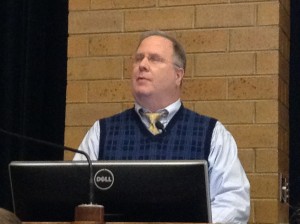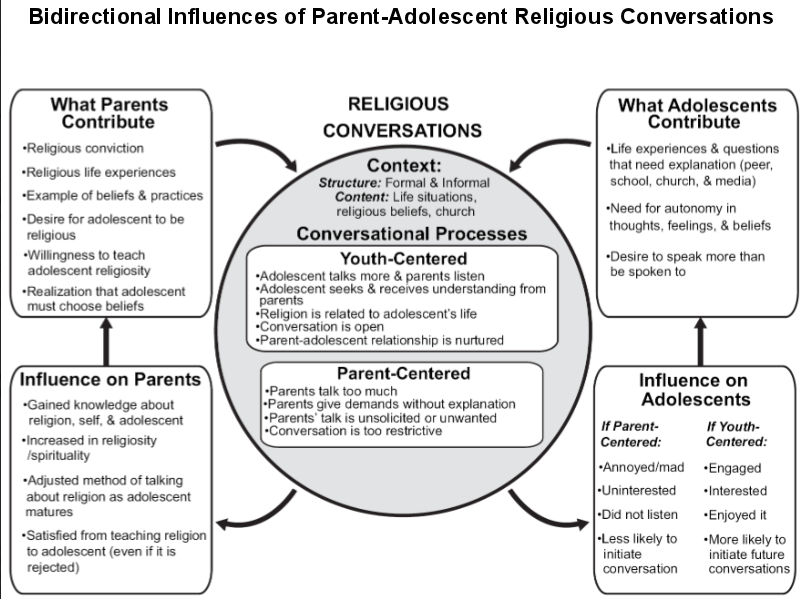Every year BYU hears from the recipient of the Virginia F. Cutler award. This year’s 51st Annual Virginia F. Cutler Award was given to David Dollahite on Oct 22, 2015.
David Dollahite is a professor in BYU’s School of Family Life. Dollahite received both his bachelor’s in family life and his master’s in marriage and family therapy from BYU in 1985. He continued his studies and received his doctorate in family studies from the University of Minnesota in 1989. His parents raised him in the Episcopalian faith and he was baptized into The Church of Jesus Christ of Latter-day Saints when he was 19.
Unique to his profession, Dollahite has chosen to study the relationship between families and religion. Dollahite’s lecture, titled “Discoveries At the Nexus of Religion and Relationships,” centered around how religion and families are connected, and how they lead to happy, healthy marriages and families.

“Religion is incredibly powerful, and it has power to both help and sometimes to hurt,” Dollahite said.
His ambition was to find ways that prove living one’s faith in the context of one’s marriage and family can be a blessing for everyone involved. The project has been on going for the past 14 years. They interviewed 200 families all over the country, all from different faiths and ethnicities. All of the families included were married and had children.
With over 4,300 pages of transcript from the interviews, Dollahite says it is amazing how much someone will open up when asked to talk about what they love, but that they still have a lot more analysis to do.
In their research they first interviewed the couples of the families and then the children of the family.
“Teenagers were a great reality check on what was presented,” Dollahite said.
Dollahite said they had four key focuses in their study: Religion and Marriage, Religion and Parent-Child Relationships, Youth Religious Identity and Spiritual Development, and Family religious Processes.
There have been many studies that show there is a correlation between religion, marriage and family relations. What they don’t know is how faith works and why religion matters. Dollahite said many of the couples they interviewed said whenever they found themselves in the mist of a conflict or disagreement they would pray together. Integrating this element of religious practices into their marriage would strengthen them if not alleviate the problem.
He also said they asked the couples how religion has affected their fidelity to their marriage. Dollahite mentioned specifically a Catholic Father that talked about his marriage ceremony.
“‘Well, when my wife and I got married in front of God, and the priest and everyone, I take that seriously, but I’ve got to tell you, what really makes a difference is when I think of the fact that my wife’s ten brothers were standing there when I made my vows to be faithful to my wife,'” Dollahite quoted, “‘And think what they might do to me if I’m not faithful.’ So God and brothers can make a big difference.”
Talking about the effect of religious practices on youth and their family relationships, Dollahite said they found a youth-centered relationship is the stronger one. This is a relationship where the child or teenager does most of the talking and the parents listen. He said families rated religious conversations between parent and child the most meaningful and the second most frequent to other religious activities such as church attendance and prayer with children.

They found in a youth-centered conversation the teenager is more open and seeks counsel from the parents. With a parent-centered conversation, the talk is mostly done by the parents; Their tone is more demanding and conversation is restricted because the talk from the parents is unwanted.
Conversations like this tend to turn the adolescent away from the parents and family. They are more irritated, uninterested and less likely to initiate conversation.
Dollahite quoted a Jewish mother, Rachel, talking about her experience with her children.
“‘We find the older kids get, they have so much to say, and they come home and they don’t want to hear us talk, they want to talk.'” Dollahite quoted.
Dollahite always included the teenagers of the families into his presentation. He talked about what a 13-year-old Orthodox Christian girl, Mandy, had said when her parents make the conversation more centered around what she has to say.
“‘Sometimes my parents don’t know the answer so then it’s kind of a discussion because they don’t have the answer to give me.'” Dollahite quoted.
The overall concept is that when the conversation is youth-centered, the emotional experience for both the parent and the child is healthier and more positive.




